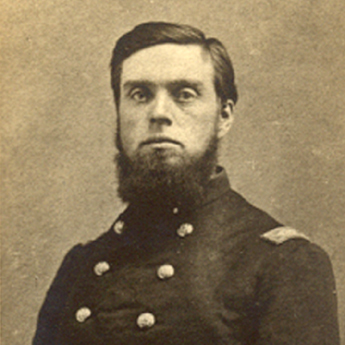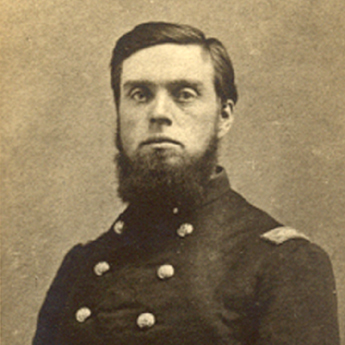Saturday, October 20, 1917 brought news of the death of General John Thomas Wilder, a prominent industrialist who lived in Johnson City between 1884 and 1892. It saddened residents all over the country, especially those in the State of Tennessee.

John T. Wilder As a Young Man
The noted soldier of the Civil War, pioneer in the iron industries of the Chattanooga district and one of the leading drivers of the commercial development of Tennessee, died that morning in Jacksonville, Florida where he went two years prior to spend the winter. His obituary indicated that he was 87 years old and for several years had been in failing health, but retained his devoted interest in the welfare of the Volunteer State. His wife, Dora Lee, four daughters and a son, survived him. He was returned to Chattanooga for burial in Forest Hills Cemetery.
Wilder was born in Hunter Villages, Greene County, New York on January 13, 1813. He served seven years as an apprentice in the iron businesses as a draughtsman, machinist, pattern maker and millwright.
The industrialist entered the war as a lieutenant-colonial in the Indiana Infantry, becoming a full colonial in 1862 and a brigadier general of volunteers two years later. His Civil War service was especially noteworthy in such battles as “Hoover’s Gap,” “Chickamauga” and “Chattanooga.” Ironically, he once shelled Chattanooga, the city that he would later call home.
After the war, Wilder settled in Rockwood, Tennessee, and later in Chattanooga. In 1867, he founded an ironworks in the Chattanooga region, then built and operated the first two blast furnaces in the South at Rockwood, Tennessee. In 1870, he established a company to manufacture rails for the railroads.
Wilder entered politics and was elected mayor of Chattanooga in 1871, but resigned a year later to pursue his business interests. He unsuccessfully ran for the United States Congress in 1876. In 1877, he accepted the position of city postmaster, serving until 1882.
In 1884, Wilder relocated to Johnson City and lived here until 1892. He helped promote and construct the Charleston, Cincinnati & Chicago (3Cs) Railroad. He also developed the booming industrial suburb of Carnegie along the east side of the city. He named it in honor of fellow industrialist, Andrew Carnegie, which included the lavish Carnegie Hotel at E. Fairview and Broadway and a host of iron making and railroad-related manufacturing facilities. Iron ore was brought to Johnson City via the East Tennessee and Western North Carolina Railroad (ET&WNC known as “Tweetsie”). Wilder constructed the popular 166-room Cloudland Hotel near the summit of Roan Mountain to serve tourists via the scenic narrow gauge railway line.
In 1887, the tycoon organized the Roan Iron Works and built and operated two blast furnaces at Rockwood, Tennessee. He became active in the mineral development of Tennessee.
In 1897, Wilder moved to Knoxville, Tennessee after receiving an appointment from President William McKinley as a Federal pension agent. Presidents Theodore Roosevelt and William Howard Taft later granted reappoints. The general eventually became commissioner of the Chickamauga and Chattanooga National Military Park.
General Wilder did more, perhaps, to develop the resources of Tennessee than any one man in the state. To him is due much credit, especially for the development of the iron resources of East Tennessee. In Chickamauga Park stands a magnificent monument erected as a fitting tribute to General Wilder’s “Iron Brigade.”
